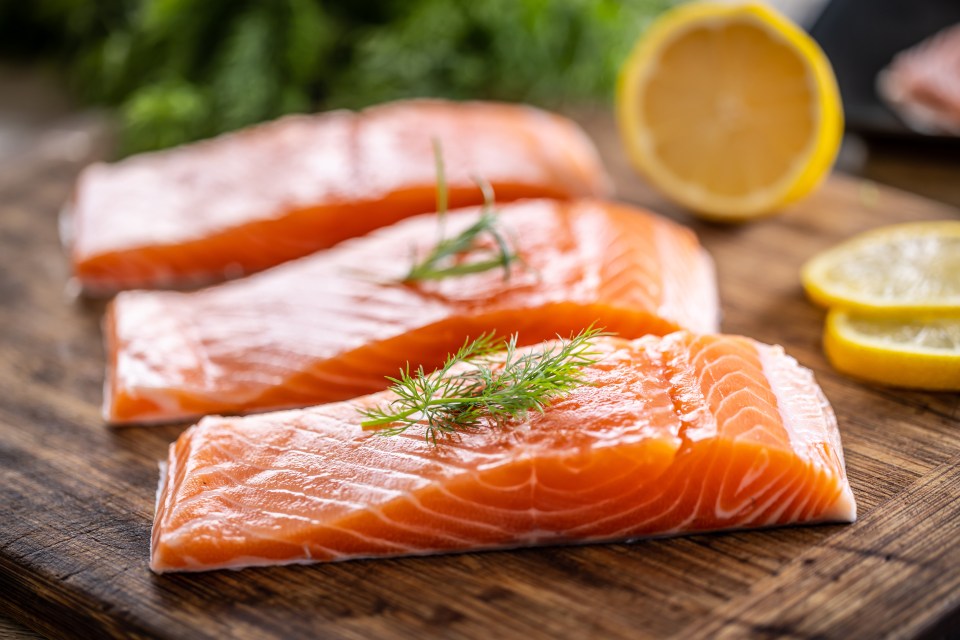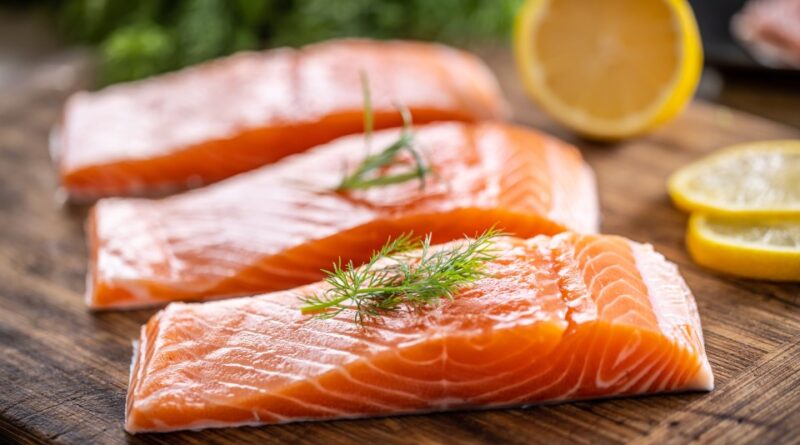4 foods “reduce the risk of 14 cancers” as scientists point to ‘protective power’
EATING foods rich in essential nutrients can reduce the risk of 14 types of cancer, scientists say.
Diets rich in so-called “healthy fats” have previously been linked to brain and heart health.

2
Now, scientists at the University of Georgia believe that omega-3 and omega-6 fatty acids can also protect you against various types of cancer.
They found that people with high levels of this fat in their blood have a lower risk of developing many types of cancer, including colon, rectal and lung cancer.
“Higher levels of omega-3 and omega-6 were associated with lower rates of cancer,” said Yuchen Zhang, lead author of the study and a doctoral student in the UGA College of Public Health. .
“These findings suggest that the average person should focus on getting more of these fatty acids in their diet.”
Omega-3 and omega-6 fatty acids are healthy fats that are both essential for human health.
Your body can’t make them so you have to get them through food.
They are found in many different foods, such as:
- Fatty fish – such as salmon, trout, mackerel and sardines
- Nuts – such as walnuts
- Seeds – such as sunflower, hemp, flaxseeds and chia seeds
- Vegetable oils – such as sunflower, canola, flaxseed and soybean oils
Many people turn to fishing oil they contribute to increasing their consumption of healthy fats, with previous studies showing that the pills can help lower cholesterol and reduce the risk of heart disease.
Research – published in International Journal of Cancer – took data from more than 250,000 people who took part in the UK Biobank study, which tracked their lives for more than a decade.
Of the 253,138 participants, 29,838 of them were diagnosed with cancer during follow-up.
Researchers have studied the effect of nutrients on the risk of developing 19 types of cancer:
- Head and neck
- Esophagus
- Stomach
- Families
- Rectal
- Hepatobiliary (liver, gallbladder and bile ducts)
- Pancreatic
- Lung
- Melanoma
- Connective tissue
- Breast
- The uterus
- Ovaries
- Prostate
- Kidneys
- Destroy
- Brain
- Thyroid
- Lymphoid cells
Participants with higher levels of omega-3s in their blood had lower rates of stomach, colon and lung cancer, in addition to lower rates of other types of digestive cancers. .

2
Meanwhile, high levels of omega-6 appeared to lead to reduced rates of 14 types of cancer – head and neck, esophagus, stomach, colon, rectal, hepatobiliary tract, pancreas, lung, malignant melanoma, connective soft tissue, kidney, bladder, brain, and thyroid cancer.
But high consumption of omega-3s appears to increase the risk of prostate cancer by 3 percent.
And high levels of fatty acids appear to have no effect on the risk of developing the remaining four cancers – including ovarian, breast and uterine cancers.
Despite not protecting against three types of cancer that mainly affect women, omega-6 fatty acids appear to have strong protection in young people, especially women.
How your diet can reduce your risk of cancer
There is no diet that can guarantee you will not get cancer – but eating a healthy diet can reduce the risk.
This includes eating more fruit and vegetables, more whole grains – such as brown pasta and whole grain bread – and choosing healthy sources of protein such as fresh chicken, fish or pulses, including lentils and beans.
Your overall diet has a greater impact on your cancer risk than any other food or ingredient.
Limiting certain foods and drinks that have been linked to a higher risk of cancer is also a good place to start.
To reduce the risk of cancer, it is recommended that you eat less:
- Processed meats such as sausages, bacon and deli meats – these have been linked to colon cancer
- Alcohol – alcohol is associated with a greater risk of seven types of cancer
- High calorie foods and sugary drinks such as fast food and fizzy pop – can make it difficult to maintain a healthy weight and obesity is also associated with a greater risk of cancer.
Eating and drinking these does not mean you will definitely get cancer, but they are associated with an increased risk.
Source: Cancer Research UK
According to the researchers, these findings suggest that the benefits of omega-3 and omega-6 fatty acids may not be equal in magnitude.
Kaixiong Ye, an assistant professor at the University of Georgia, said: “For women, it’s an easy decision: Eat more omega-3.”
But for men, consuming omega-3 fatty acids should be approached with more careful consideration, he said.
The researchers said that more research is needed to fully understand the relationship between saturated fat and cancer risk.
“Our education laid a solid foundation for the future mechanistic studies on the role of polyunsaturated fatty acids (PUFAS) in the aetiology of different types of cancer,” the study authors concluded.
“It also sheds light on the development of cancer prevention strategies by controlling circulating PUFAs.”
#foods #reduce #risk #cancers #scientists #point #protective #power
